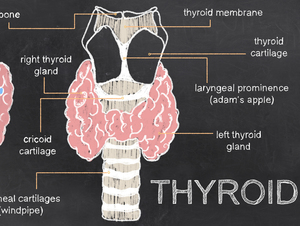What are the risks of parathyroid surgery?


Parathyroid surgery is generally a very safe operation, especially when performed by an expert at the operation. There is a risk of complications with every operation, though. The main risks with parathryoid surgery are postoperative bleeding, voice changes, and thyroiditis.
Bleeding is a risk with any operation. It occurs in about 1 in 500 cases (about 0.2%). It is more likely in patients who are on blood thinners (such as aspirin, Plavix, warfarin, Xarelto, Eliquis, and others). Sometimes it just occurs without a clear cause. Treatment involves returning to the operating room to clean out the blood and look for the source of bleeding. When you have bleeding, it usually is not subtle - your neck swells impressively. If that happens, it is an emergency, and you need to be in an emergency room. Mild swelling is normal postop, but if you are concerned, call your surgeon.
Severe hoarseness can occur as a result of manipulation or injury to the nerves that control your voice. This also occurs in about 1 in 500 cases. The recurrent laryngeal nerves (one on each side) are the main nerves we have to deal with. Sometimes the parathyroid tumor is stuck on the nerve and we have to carefull dissect it free. The nerve does not like being manipulated like this. Usually, it still works fine after surgery, but sometimes it will stop working while it heals. In nearly all cases, it does heal, and your voice returns. This can take anywhere from a week to 6 months, though on average it improves around 6 to 8 weeks after surgery. During that time, your voice is often very soft and hoarse. It tends to recover quickly once the nerve recovers.
Thyroiditis is a more common complication, though less serious in most cases. It is due to irritation of the thyroid gland. In this condition, the thyroid dumps out thyroid hormone, causing a temporary hyperthyroidism which appears within a week after surgery. It seems to be more common in patients who already have a chronic inflammation of the thyroid, such as with Hashimoto’s thyroiditis. Most of the time, postoperative thyroiditis is mild and produces no symptoms. In other cases, the excess thyroid hormone will produce symptoms such as palpitations or anxiety. Sometimes patients will temporarily need a medication for a fast heart rate or for anxiety. Postoperative thyroiditis resolves on its own within a few weeks.



